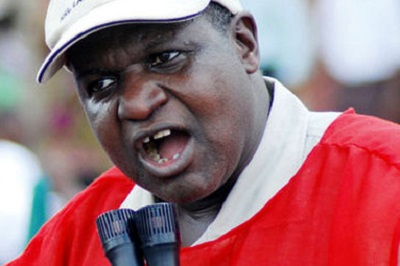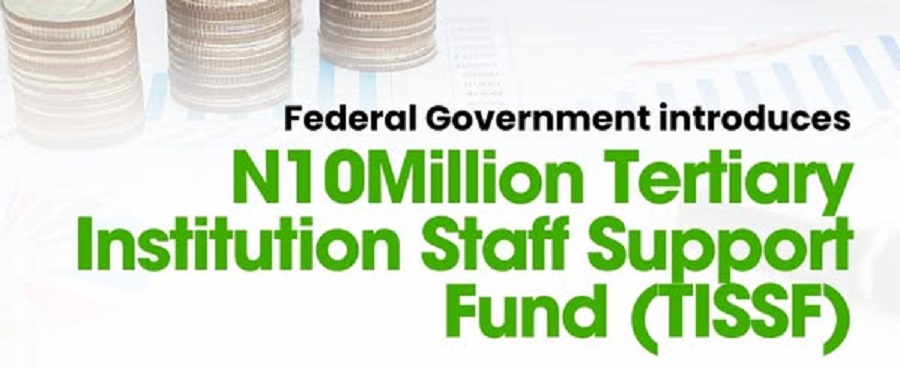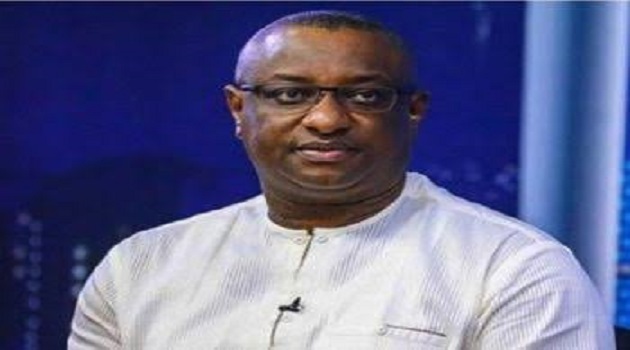News
Cashless Policy: Active PoS Terminals Hit 30,000

Chike Onwuegbuchi Cashless Policy: Active PoS Terminals Hit 30,000 Total active point of sale (PoS) terminals, electronic devices used for verifying and processing transactions at merchant locations nationwide have hit a record high of 30, 000 suggesting that the Central Bank of Nigeria (CBN’s) policy of cashless regime is gaining momentum, Nigeria CommunicationsWeek can now reveal. Before the introduction of the CBN policy to aggressively reduce the use of cash in transactions in January, there were only 4,000 active PoS terminals in the whole country. Nigeria CommunicationsWeek investigations revealed that the tremendous rise in the number of active PoS terminals deployed across the country was buoyed by the devices’ acceptance in merchant locations such as hotels, supermarkets among others. Under the CBN’s cashless regime, PoS terminals acquirers otherwise banks were created and mandated to handover the terminals to Payments Terminal Service Providers (PTSP) among them ValuCard Plc, Paymaster, Etop Nigeria, Easyfuel and Citiserve to drive the cashless policy. In the new arrangement PTSPs will be required to enter into contracts/service level agreements with the acquirers that will clearly state the terms and conditions of their support services, including the fee structure and timeline for fee settlement. Nigeria CommunicationsWeek gathered that the successful implementation of this guideline has given rise to the increase in the number of deployed PoS in the country. The cashless policy of CBN commenced in Lagos last January as a pilot scheme expected to be extended to other major cities in June this year. According to the cashless economic policy unveiled by CBN in April last year individual and corporate customers would be restricted to free daily cumulative cash withdrawals and lodgments of N150,000 and N1 million respectively. It further states that ‘individuals and corporate organisations that make cash transactions above the limits would be charged a penal fee of N100/thousand and N200/thousand respectively for amounts above the cumulative limits.’ In other words, anyone depositing or withdrawing any amount above N150, 000 would be charged N100 for every additional N1, 000 while for corporate customers, the charge is N200. The policy, which was jointly formulated by CBN and the Bankers Committee, is intended to help in reducing the dominance of cash in the economy. The 30,000 PoS are basically terminals deployed at merchant locations for payment of transactions and not including terminals deployed at bank branches which are for lodgment confirmation as well as fund transfer.
News
Senate Denies $10m Bribe to Obstruct Confirmation of NERC Nominee

The Senate on Friday night halted the confirmation of Mr Abdullah Garba Ramat, as chief executive, Nigerian Electricity Regulation Commission (NERC), following allegations that the leadership of the 10th Senate, took a bribe of $10 million bribe.

The allegation came from Alwan Hassan, former special adviser to former Vice President, Yemi Osibanjo.
Hassan, had alleged that the leadership of the 10th Senate, took a bribe of $10 million to stop the confirmation of the nominee as chairman of NERC.
But Senator Yemi Adaramodu, spokesman of the Senate, in a statement dismissed the allegation as unfounded.
Adaramodu said the stance of the Red Chamber to step down the screening and confirmation of Ramat, for the office of Chairman of NERC,was informed by what he called “a baggage of public and private complaints against his nomination.”
He recalled instances when “many nominees have been stepped down due to such public outcry,” and urged the public not to be persuaded by the allegations of bribery.
The Senate further vowed to sue Hassan, to provide Nigerians with the proof of his allegations.
The statement reads in part: “The attention of the Senate has been drawn to the uncoordinated cacophony of one innocuous Alwan Hassan, who is a hand-tool to one Mr Abdullah Garba Ramat.
“Refreshing the memories of Nigerians, Mr. Ramat is the yet to be confirmed Chief Executive of the Nigerian Electricity Regulation Commission.
“Mr Alwan has ludicrously alleged that the Senate was compromised by yet to be disclosed ghosts to reject the nomination and confirmation of Mr Ramat.
“For the unsuspecting public not to be persuaded by the satanic verses of this political feckless mercenary, the Senate wishes to state that Mr Garba Ramat has a baggage of public and private complaints against his nomination. The Senate is bound statutorily to halt actions on him or on whoever is under such public questioning. Many nominees have been stepped down due to such public outcry.
“The case of Mr Ramat is not an exemption. No-one can drag the institution of the National Assembly into public opprobrium with unfathomable allegations, in order to arm twist the legislature.
” Nigerians would like to have appointees who go through watertight screening processes, rather than those who bully their ways through blackmail.
” The Senate would definitely engage Mr Alwan at the court, to provide Nigerians with the proof of his assertions.
“The Senate is an institution of noble Nigerians, that respect the views, opinions, complaints and compliments of the citizens through Legislative oversight and other constitutional functions.
‘We don’t know and had no prior encounter with Mr Ramat, until his nomination came for screening and the Senate is bound to listen and consider any issues raised against him by the people, who he was nominated to serve.”
News
FG Launches N10m Interest-Free Loans for Varsity Staff

Federal government of Nigeria has officially launched and commenced the disbursement of the N10 million interest-free loans under the Tertiary Institutions Staff Support Fund (TISSF), marking a major milestone in educational welfare and institutional strengthening.

The launch took place at the Federal University of Technology, Akure (FUTA), symbolizing a national effort to empower educators and promote academic excellence.
According to official data, over 9,000 staff members across 219 institutions have already enrolled, signaling a strong commitment to revitalizing Nigeria’s knowledge economy.
Professor Suwaiba Sa’id Ahmad, minister of State for Education, described the TISSF as a “visionary welfare breakthrough that restores pride, value, and dignity to the teaching and research professions.”
She emphasized that the initiative not only reduces financial stress but also empowers educators to focus on scholarship, mentorship, and community service.
The minister also appreciated the Bank of Industry and partner agencies for their effective role in implementing the scheme.
Dr. Tunji Alausa, minister of Education, noted that the TISSF goes beyond financial aid, describing it as a “bold investment in the people who shape the nation’s future.”
He stated that the initiative was designed and executed in just four months, reflecting efficient governance and innovation in policy implementation.
Dr. Alausa further assured that with transparent monitoring and evaluation, the Fund will remain sustainable and accessible to staff across all tertiary institutions.
Institutional leaders also lauded the initiative.
Professor Adenike Temidayo Oladiji, Vice-Chancellor of FUTA, described it as “timely, transformative, and strategic,” noting that the university’s inclusion as a beneficiary of the One Billion Naira Commercialization Aid Fund would further strengthen innovation and enterprise on campus.
One of the beneficiaries, Mrs. Bola Ajayi, expressed gratitude to the Federal Government, stating that the support represents “renewed hope for staff and their families,” highlighting its far-reaching impact beyond financial relief.
Through the TISSF, the Federal Ministry of Education reaffirms its dedication to building a transparent, accountable, and life-changing education system where every educator is valued, supported, and empowered.
News
FG to Set up Aircraft Leasing Company to Support Local Airlines

The Federal Government has disclosed plans to establish an aircraft leasing company in Nigeria, aimed at providing a much-needed boost to local carriers. This strategic initiative is designed to empower Nigerian airlines by serving as an intermediary between them and international lessors, with the government providing a sovereign guarantee to facilitate transactions.

Festus Keyamo, minister of Aviation and Aerospace Development, disclosed this during the ceremonial arrival of Air Peace’s first dry lease aircraft, Boeing 737-700 at the Murtala Muhammed Airport Terminal 2 in Lagos.
According to Keyamo, the proposed aircraft leasing company will enable local airlines to access aircraft without having to navigate the complex global market alone. “We want to put an aircraft leasing company in place, so that Nigerian airlines will not be the ones negotiating with the world,” Keyamo stated.
“We don’t have to walk in silence again. The airlines don’t need to walk around the world looking for aircraft. Government must take care of that responsibility.” With the government’s sovereign guarantee, the project is expected to attract investors from around the world, creating a pool of resources that will support local airlines.
The minister emphasised that the leasing company will form a capital base, with local airlines given priority access to these resources. “This pool will form a capital base. No other person can be the off takers before the local airlines. This will make life easy for the airlines. We’ll be knocking on the doors of aircraft lessors and manufacturers very soon to talk business. We are here to support the local airlines.”
The establishment of the aircraft leasing company is expected to have a significant impact on the Nigerian aviation sector, enabling local carriers to compete more effectively with their international counterparts. With the government’s support, Nigerian airlines will be able to access modern, fuel-efficient aircraft, enhancing their operational efficiency and safety standards.
Keyamo described the arrival of the dry lease aircraft for Nigeria and aviation industry as a whole.
“This is a momentous occasion for Air Peace and the Nigerian aviation industry,” Keyamo stated. “It demonstrates the government’s commitment to supporting local carriers and promoting the growth of the aviation sector.”
Keyamo commended Air Peace for its discipline and financial prudence, which have enabled the airline to achieve this significant milestone. He also emphasised the need for local airlines to acquire more aircraft to compete effectively in the international market. “There is a need for the acquisition of more wide-body aircraft by local operators to compete in the international space,” Keyamo stated.
Allen Onyema, chairman, Air Peace said the journey of securing an aircraft through dry lease started at the minister’s office who saw the importance of having a vibrant aviation sector, and is always willing to partner with the local airlines, leasing companies and the Nigeria Civil Aviation Authority (NCAA) to ensure Nigeria has a chance to take its rightful place in commercial aviation in Africa.
Onyema said Air Peace has been very diligent in ensuring its aircraft are properly maintained, stressing that it would continue to represent Nigeria well at the international space.
“We make sure that our maintenance is top-notch. We are here on behalf of other Nigerian airlines. We are carrying the visions and aspirations of this country and if we fail, it will be a disgrace.
“Given the support we have received from all arms of government and the Nigerian public, I believe we won’t fail our country,” the Air Peace chairman said.
Onyema commended Festus Keyamo for his relentless efforts in supporting local airlines.
“We need wide-bodied aircraft. Like him or hate him, the minister has changed the face of the country’s aviation industry. In the eight years before he came, it was a struggle for Nigerian airlines. When the minister came on board, he noticed a gap and fixed it.
“Before now, the mantra was that Nigerian airlines lack capacity therefore let us invite foreign airlines to take over. He looked at what to do to support Nigerian airlines so that they can compete. The President also gave the marching order to make this happen,” Air Peace chairman said.
Onyeme said most big airlines don’t own some of the aircraft they use as most go to Boeing and Airbus to make orders and the lessors grant them.
“That is why you see one airline having about 400 planes. In Nigeria, every airline owner is expected to buy their own aircraft. When we brought up the issue of aircraft dry-leasing with the minister, he did the necessary things. Today, we have a dry-leased aircraft,” he said.
Moore Ibekwe, Junior sales director, Africa Region Boeing Commercial Airplanes said three years ago when he took up the job as a sales director for West Africa, East Africa, Southern Africa, and Morocco, only himself and one of his senior finance directors believed that this day could happen.
“However, I want to everyone because we continue to push. They were open to tell us what it would take for us to get here, how we can get aircraft into Nigeria, and I see this as the beginning. Yes, it’s one aircraft, but I can tell you this is the opening point for a better aviation sector,” Ibekwe said.
He said Nigeria needs to take its rightful place in aviation with Air Peace setting the pace.
“Air Peace plays a pivotal role in the Nigerian economy.This is about the region. This is about Africa. This is about us creating opportunities for the future.
“Air Peace hires or employs thousands of people, and their families depend on the airline for their livelihood. And it’s important that we have to support the industry here,” Ibekwe added.
Present at the event was Chris Najomo, Director General of the Nigeria Civil Aviation Authority; Bunmi Kuku, Managing Director Federal Airport Authority of Nigeria, Peter Ryan,
Irish Ambassador to Nigeria, and Kevin Ugwuoke, Financial partners- Executive Director Risk Management at Fidelity bank, who also represented by
Kenneth Opara, the Executive Director of the bank, among others.

 Broadcasting2 days ago
Broadcasting2 days agoOluwaseun Dania Unearths How AI will Shape Africa’s Creative-AI Future @ World Bank Forum

 E-Financial2 days ago
E-Financial2 days agoFlutterwave CEO @ CNN Global Perspectives Summit, Envisions Building Africa’s ‘Payment Superhighway’

 E-Business3 days ago
E-Business3 days agoBlack Friday: How Konga Yakata is Defying Global Inflation

 News3 days ago
News3 days agoTax Ombudsman is to Protect Businesses from Harassment—Oyedele

 News3 days ago
News3 days agoLassa Fever’s Death Toll in Nigeria Hits 176- NCDC

 News3 days ago
News3 days agoFG Okays Biometric Upgrades @ Airports, Others

 Telecom3 days ago
Telecom3 days agoGlo Rolls Out ‘Take a Guess,’ Bringing Fun and Big Wins This Season

 E-Financial2 days ago
E-Financial2 days agoVentures Platform, Nigerian Firm Raises another $64m

























